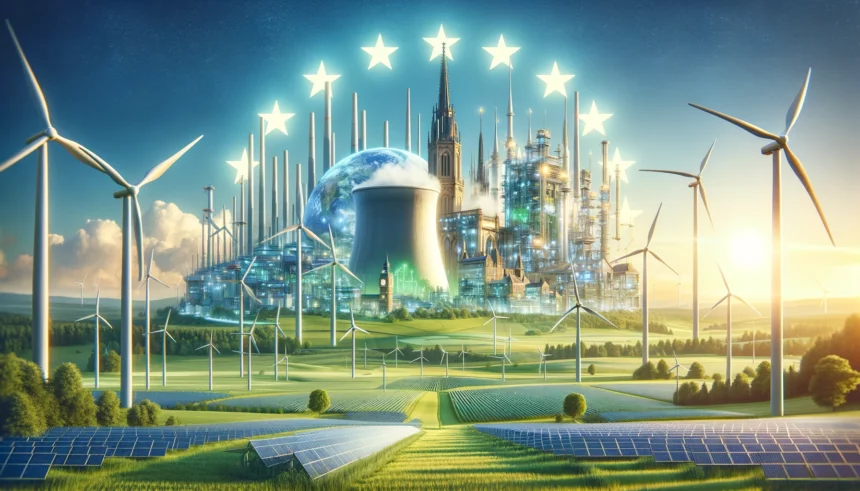On Tuesday, the European Union completed negotiations on a pioneering law aimed at strengthening its green technology sector. This move is part of the EU’s strategy to remain competitive against the advancements of the United States and China.
Titled the Net-Zero Industry Act, the legislation is designed to fast-track permits and allocate funds to technologies critical for achieving the EU’s ambition of becoming climate-neutral by 2050, a commitment previously established in another piece of legislation.
Christian Ehler, a German MEP from the center-right, emphasized the significance of the EU’s response to the U.S. Inflation Reduction Act, a major American initiative that has attracted considerable green investment with its generous funding. Although the EU’s financial commitment doesn’t match the U.S.’s $369 billion investment, Ehler believes the EU’s effort is a robust statement of its own.
Ehler highlighted the unique strengths of the EU, including its robust market and foundational ideals, as key factors in its strategic approach.
The legislation arrives at a critical moment for Europe’s renewable energy sector, which faces significant challenges. Numerous solar energy companies are declaring bankruptcy, blaming it on the influx of cheaper alternatives due to China’s hefty subsidies. There’s also a divide within EU nations on whether and how to support the struggling sector.
The Net-Zero Industry Act, proposed as part of a wider reevaluation of the EU’s policies, aims to revitalize manufacturing within the union. It sets an ambitious target for the EU to fulfill 40% of its clean technology needs internally by 2030, through expedited permitting processes and safeguarding local enterprises from unfair international competition.
The law identifies key clean technologies and labels some as “strategic” for expedited permit processing and easier funding access. Moreover, it aims to amend government procurement policies to occasionally prefer local green tech solutions and imposes environmental criteria on foreign firms seeking EU government contracts.
Additionally, the bill promotes an EU initiative to develop a carbon capture and storage network, with a goal to establish a capacity of 50 million tons per year. It mandates contributions from the oil and gas industry towards this goal and includes penalties for non-compliance, marking a significant step towards the EU’s environmental objectives.
















